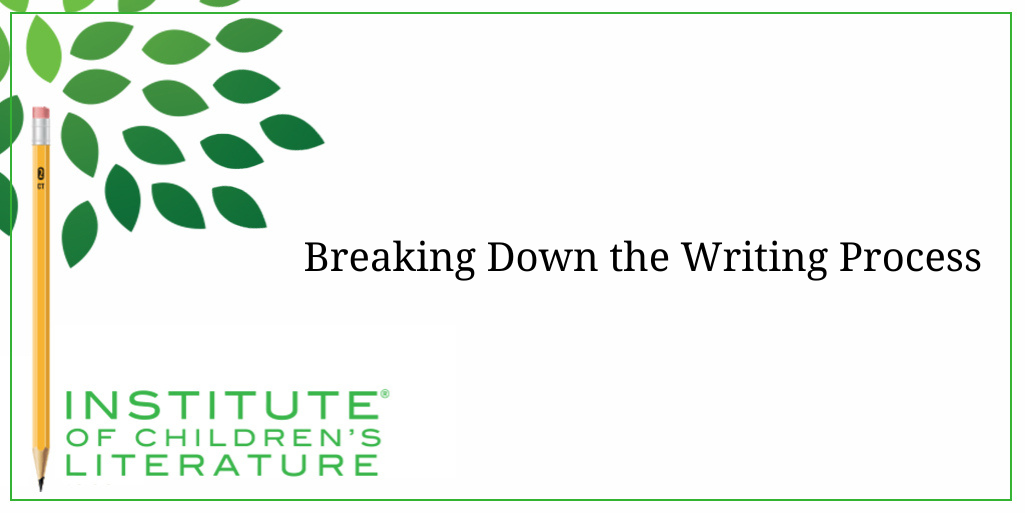
5 Ways Writers Can Prep for 2025 Goal Setting
Before we roll on to the new writing year, let’s harness our optimism for the blank slate before us and prepare for our 2025 Goal Setting just for writers.

As with most any large task, the process of bringing a writing project from idea to finished submittable form can be broken down into steps to better understand how this creative process works. And the creation of a written, publishable piece (be it short story, article, or book) can be broken down roughly into prewriting, writing, and post-writing. Depending on the project, the writing part of this breakdown might not even be the biggest piece (though, with novels, it usually is). Let’s take a broad overview of these three writing process pieces now, and then look closer at them in the weeks ahead.
Prewriting consists of all the parts that come ahead of the writing. It includes idea generation, coming up with the premise, and the theme or “big idea.” It’s the time you figure out who you’re writing for (young children, middle graders, young adults, or maybe none of those). It also includes research, both for factual elements of the story/article/book itself and for the publish-ability of the idea (for example, if the market already has a comprehensive guide to slugs that came out last year, does it really need yours? And if so, why?)

Prewriting can seem like not writing at all as it involves reading and thinking as much as writing anything down. It’s also a process that can take a long time as an idea percolates in your brain before it comes together enough to be written. Prewriting is an extremely active part of writing, but it’s a different kind of activity. It’s a time for asking yourself questions and seeking out the answers, each of which brings you closer to typing those first words. Without prewriting, everything about the writing step becomes harder and slower.
This part of the writing process is the one everyone associated with writing. It’s getting the words down on the page or into a file on the computer. It’s putting flesh on the prewriting bones of idea, premise, plot, and characters. It’s the most thrilling part and sometimes the scariest. It can make you laugh out loud or cry. Writing is when you’re telling yourself the story as much as (or more than) you’re telling it to the audience. In fact, you’ll almost certainly have to do a lot of work to change “telling yourself the story” to “telling it for an audience,” but that’s a worry for later. For now, you’re pouring out the words (or trickling them onto the page) and that’s enough. Writing isn’t about being perfect, it’s about being caught up. If you’ve done the prewriting process right, you’ll find it easier to be caught up in the writing process because you won’t be constantly stopping to sort out questions.
It’s perfectly normal to find that some of the thinking and decisions made during the prewriting don’t work anymore once you get into the weeds of writing. Character motivations can change. Article organization can prove to be unbalanced or confusing. And sometimes you simply need to change direction from the plan. This can be scary, but prewriting isn’t meant to create a box to work in.
Prewriting’s job is to give you the tools to get into the writing flow. When it stops helping, it’s okay to try new directions. Sometimes I have to stop and slip back into prewriting thinking to sort out this new change and what it will mean for the final project. Your goal is to get the piece out of you and onto the page, so whatever you need to do to accomplish that is perfectly fine.
After you’ve gotten the entire story or article or book out of you, it’s easy to sigh and think of the job as finished. It’s not finished. For most of us, it’s not even close to finished. Sure, celebrate having gotten this far, but don’t let that relief rush you through the important jobs of revision and submissions planning.

It can also include larger things like errors in logic, plot holes, poor characterization, bad organization, and other bigger-picture fixes. Whatever stands in the way of this work engaging someone who isn’t you must change. That process can pinch, but it’s important.
Once you’re comfortable with the revision, you must analyze the piece from the eyes of an acquiring editor and begin to think about things like how it will compete in the market and who is the best publisher for it. That is the last step and often the least enjoyable, but it is also important as it gets your work out into the world and before the reader you’ve been wanting to reach all along.
Keep in mind that prewriting, writing, and post-writing aren’t always as neat and separate in the writing process as this makes them sound. As I mentioned, sometimes I find myself stopping in the middle of my writing to rethink prewriting decisions. I also tend to think about possible publishers right at the prewriting stage instead of waiting until all the way at the end. The post-writing stage is when I need the information, but I often have some thoughts about it all along. Also, as I prewrite, considering my premise, plot, and characters, I sometimes “hear” snatches of dialogue or scenes in my head and I’ll write those then. Later they may be dropped into the story or they might not. But clearly, that would be blurring the lines a little between prewriting and writing.
So don’t feel like this has to be always done one way in distinct steps. Each of us finds our own process over time. By understanding all the steps that need to be taken at some point, you will have a better, stronger product at the end because you won’t have missed important elements that bring cohesion, organization, and clarity to the work.
Find your writing process and I know you’ll see bits of these steps as you work your way through it.
With over 100 books in publication, Jan Fields writes both chapter books for children and mystery novels for adults. She’s also known for a variety of experiences teaching writing, from one session SCBWI events to lengthier Highlights Foundation workshops to these blog posts for the Institute of Children’s Literature. As a former ICL instructor, Jan enjoys equipping writers for success in whatever way she can.

Before we roll on to the new writing year, let’s harness our optimism for the blank slate before us and prepare for our 2025 Goal Setting just for writers.

Writers can be thin-skinned when it comes to getting feedback on their work. Let’s look at 4 ways to positively deal with constructive criticism!

Rejection is part of the territory when it comes to being a writer. Today we offer reflection for writers to help redirect your efforts after a rejection.
1000 N. West Street #1200, Wilmington, DE 19801
© 2024 Direct Learning Systems, Inc. All rights reserved.
1000 N. West Street #1200, Wilmington, DE 19801
© 2024 Direct Learning Systems, Inc. All rights reserved.
1000 N. West Street #1200, Wilmington, DE 19801
© 2024 Direct Learning Systems, Inc. All rights reserved.
1000 N. West Street #1200, Wilmington, DE 19801
© 2025 Direct Learning Systems, Inc. All rights reserved.
1000 N. West Street #1200, Wilmington, DE 19801
©2025 Direct Learning Systems, Inc. All rights reserved. Privacy Policy.
5 Comments